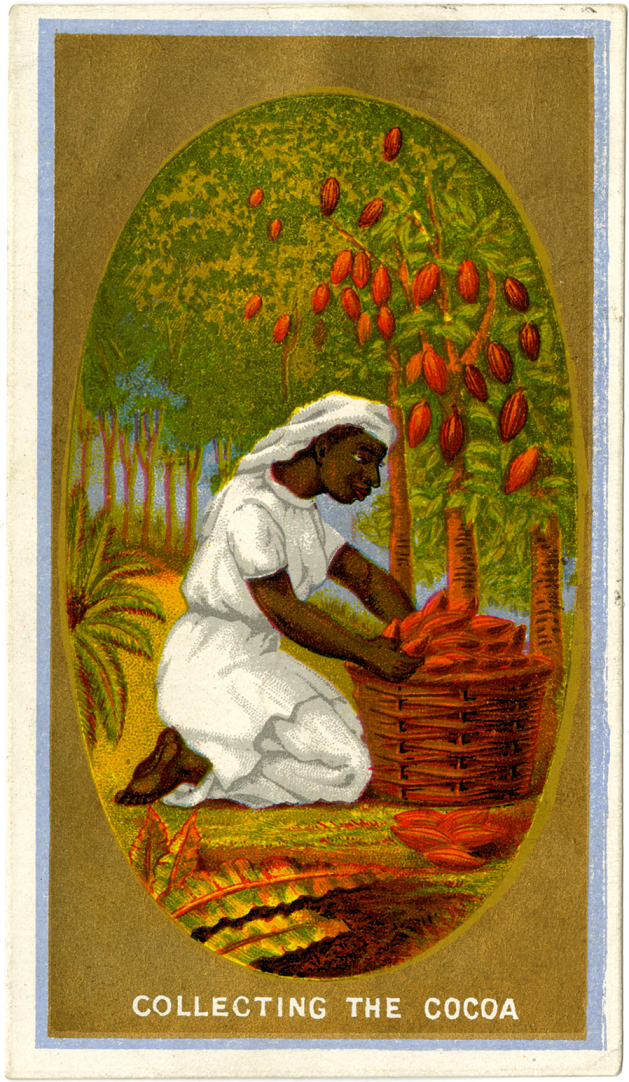The Chocolate Myth

Chocolate is political. Critical awareness of where cocoa beans come from, who works for the pleasurable consumption of chocolate products, and of the ethics and sustainability of food production is not confined to foodies discourse. Debates about fair trade and workers’ rights and child labor are nothing new, either, yet they reveal an uncanny resemblance to (neo-)colonial trading systems. In 1920, W.E.B. Du Bois perceptively described the contradictions underlying the United States’ appetite for colonial commodities. In “The Souls of White Folks,” he writes: “Rubber, ivory, and palm-oil; tea, coffee, and cocoa; bananas, oranges, and other fruit; cotton, gold, and copper—they, and hundred other things which dark and sweating bodies hand up to the white world from their pits of…